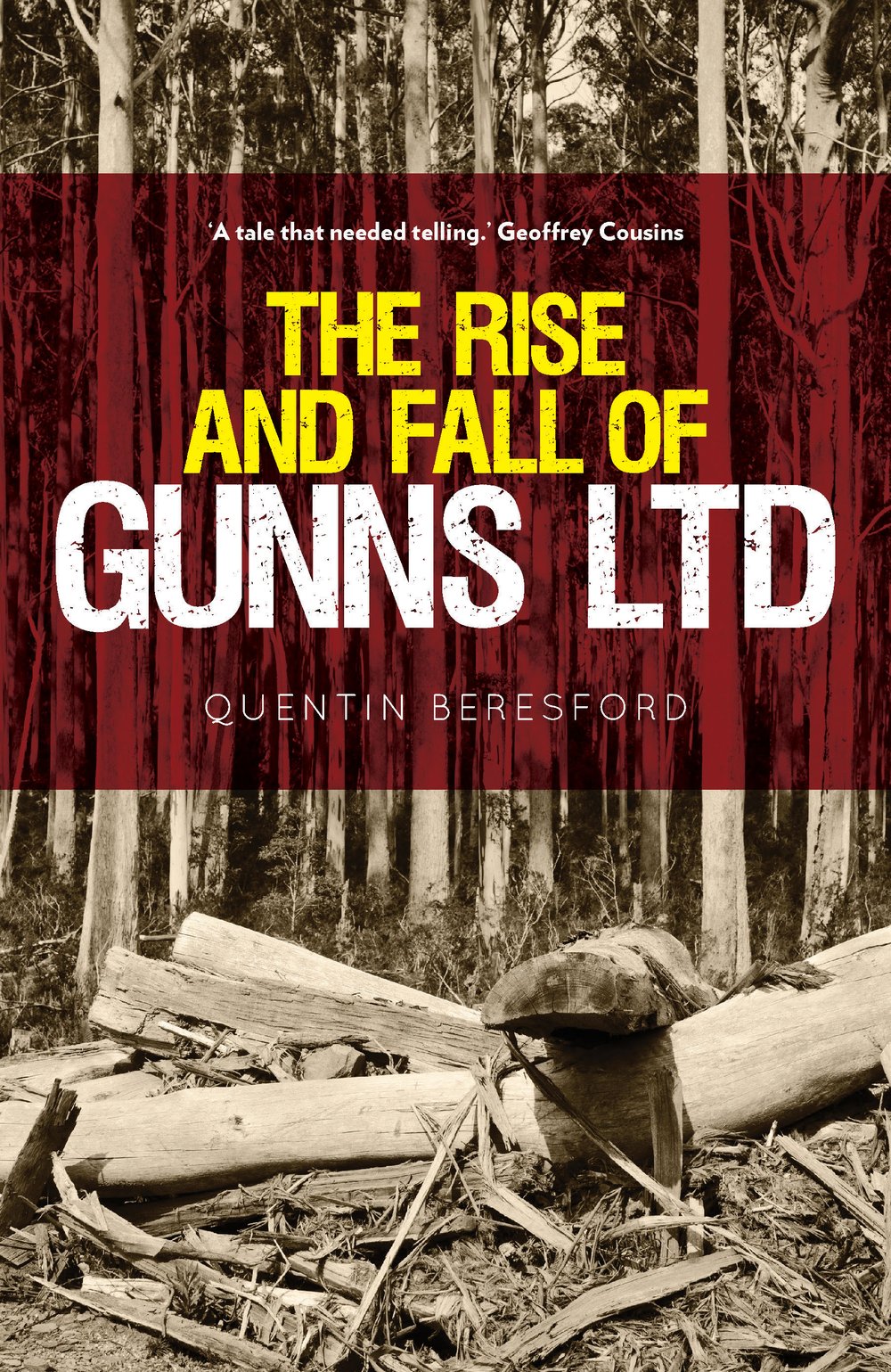Back in the early 2000s, the controversial forestry giant Gunns Ltd decided to build a pulp mill in Tasmania’s Tamar Valley. The plan met with bitter, determined and very public opposition in a David-versus-Goliath battle. Then, in 2012, Gunns Ltd collapsed in spectacular fashion. Quentin Beresford’s The Rise and Fall of Gunns Ltd takes a broad view of what happened to Gunns, from the boardroom to the national political stage.
The 2012 collapse of Gunns Ltd, Australia’s largest timber company, was a major national news story. Gunns had already been dogged by controversy for more than a decade, not only because of the pulp mill saga, but because of its poor environmental practices and its political influence at both state and national levels. Gunns was also caught up in the same tax minimisation scheme that saw the demise of other timber companies including Timbercorp and Great Southern, the fallout from which is ongoing.
Gunns operated as a rogue corporation. Its autocratic CEO managed to gain the compliance of the major political parties both state and federal. But how did Gunns wield such enormous power while it was engaged in the highly unpopular practice of clear-felling old growth forests – and even when the global-scale pulp mill it had planned for the Tamar Valley was bitterly and very publicly opposed?
The Rise and Fall of Gunns Ltd locates Gunns and its corporate culture within Tasmania’s ideology of state development, an ideology that saw the rise of a post-war culture based on crony capitalism, authoritarian political leadership and enormous power wielded by the Hydro Electric Commission, the Forestry Commission and the union movement. Such a corporatised government was highly prone to capture by vested interests and to corruption of the democratic process. Gunns became a dominant force within this model of power.
Among the controversial aspects of Gunns was its use of legal process to attempt to silence and intimidate its critics. The so-called Gunns 20 case, in which 20 critics of the company were targeted with a multi-million dollar defamation suit, attracted national and international condemnation as an example of the corporate abuse of power.
Gunns was also a major player in a managed investment scheme that had the backing of the federal government. Widely criticised as a Ponzi scheme and a racket, the scheme delivered major profits to companies including Gunns while, at the same, time, making thousands of unsuspecting investors vulnerable to the loss of their investment.
Gunns’ dogged pursuit of its plans for the Tamar Valley pulp mill sparked a protest movement, the extent of which had not been seen in Tasmania since the dispute over the Franklin River Dam. Nothing better symbolised the corruption of the politics behind Gunns than the fast-tracked legislation to approve the mill instigated by the state Labor government and which ramped up protest over the mill into a national issue.
The movement opposing the pulp mill linked local community groups with state and national environment organisations, high-profile personalities and The Greens. As the book charts, it was a highly innovative campaign targeting federal political leaders including Malcolm Turnbull and Peter Garrett, the board of Gunns and its CEO, the ANZ Bank and some of the nation’s biggest investment houses.
This David-versus-Goliath struggle over Gunns and its backers exposes many of the key elements of modern politics: the power of corporations, the role of big money, the corruption of the institutions of government and, ultimately, the power of ordinary people.
* * *
Quentin Beresford’s book The Rise and Fall of Gunns Ltd is published by NewSouth in February 2015. The book will be launched in Hobart by Bob Brown (5 February, Fullers Bookshop) and Launceston by Geoffrey Cousins (8 February, Tailrace Centre).
Watch Greens Senator for Tasmania, Peter Whish-Wilson, speak impassionedly in the Senate about The Rise and Fall of Gunns Ltd.: 'An extraordinary book, a first of its kind, a book that needs to be read and debated by every Tasmanian—indeed, Australian—who cares for democracy and the future of this country's wild places.'

